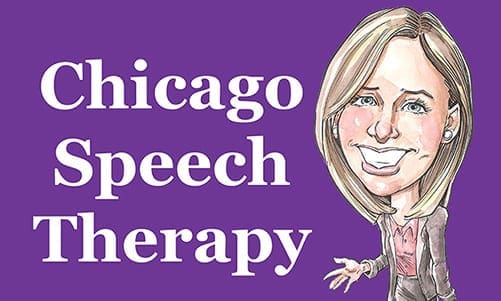Identifying the Symptoms Do you ever get the feeling that your child is having trouble listening to you? Maybe he or she doesn’t seem to be interested when you read story books aloud. Or perhaps you’ve noticed that your child has trouble following spoken instructions. Does he or she often parrot your words back to you? These behaviors could be …
Tratamiento de la apraxia infantil por la logopedia de Chicago
As adults, we take speech for granted. Adults can talk all day and sometimes not even think about it, so it’s difficult to comprehend why your child is struggling with something as natural as speech. However, in reality, the oral-motor skills needs to speak properly are very complicated – and this is evident when we see how long it takes …
Terapia del habla en Chicago: ¿Qué es la parada?
What is Stopping in Speech? When a child has a difficult time pronouncing some sounds, they might make substitutions. For example, a child might say “shtip” instead of “ship” or “dope” instead of “soap.” This particular type of behavior, when a child inserts a “stopping” consonant (b/p/t/d/g) is appropriately called “stopping” and generally develops when a child is between 3-5 …
Consejos de logopedia: ¿Qué deben hacer los padres de niños con trastorno de procesamiento auditivo?
Auditory processing disorder (ADP) is characterized by an inability in children to process the information they hear in the same way as others. Children who have ADP often cannot recognize the small differences between sounds in words no matter how clearly the word might be spoken. While this disorder affects roughly 5% of school-aged-children, the nature of ADP’s symptom mean …
¿Qué debo hacer si mi hijo tiene apraxia? por Chicago Speech Therapy, LLC
Childhood apraxia of speech (CAS) is a neurological disorder characterized by the inability to carry out skilled or planned movements and gestures, specifically those movements having to do with speech production. Though doctors are uncertain what causes this disorder, they do know that while your child may have the intention to communicate, the desired message gets disrupted on its way …
Hitos del habla para determinar si su hijo se está desarrollando a tiempo por Chicago Speech Therapy
Do you wonder if your child’s speech is comparable to other children of the same age and background? Are you worried about your child’s ability to understand and communicate with you? Here is a quick list of milestones that you can use to gauge your child’s progress in his or her first five years: 0-5 Months Reacts to sounds; turns …
Terapia del habla en Chicago: ¿Sufre mi hijo un trastorno del lenguaje receptivo?
What is Receptive Language Disorder? Receptive Language Disorder affects the brain’s ability to understand either spoken or written language. It can be directly impact a child’s speech development if left unaddressed. Up to one out of every 20 children has symptoms of either a Receptive Language Disorder or the related Expressive Language Disorder, and between three and five percent are …
Sistema de Comunicación por Intercambio de Imágenes (PECS): ¿Cómo puede ayudar a mi hijo a comunicarse?
What is the Picture Exchange Communication System? The picture exchange communication system (PECS) is based upon pictures and focuses on helping children to communicate “wants.” Pictures of food or activities are drawn onto cards or photographed by the communication partner (parent or therapist) and presented in front of the child so that he or she can see them and point …
Terapia de lenguaje para abordar la alimentación selectiva frente a la alimentación problemática
Do you have a child who only eats certain things and refuses to try new foods? Does your child refuse to eat food altogether? If you answered yes to either of these questions, your child might be a picky eater or problem feeder. For proper physical, emotional, cognitive, and speech development, you need to ensure your child eats a balanced …
Ideas para la logopedia: Una guía para los padres para las actividades que pueden estimular el aprendizaje de su hijo
Children do not begin to master language until they are 5 to 6 years old but they begin learning words and their meanings earlier than that. Parents can do a lot to ensure the progressive development of language in their child. Studies have shown that a child’s ability to learn can increase 25% or more depending on whether she or …
